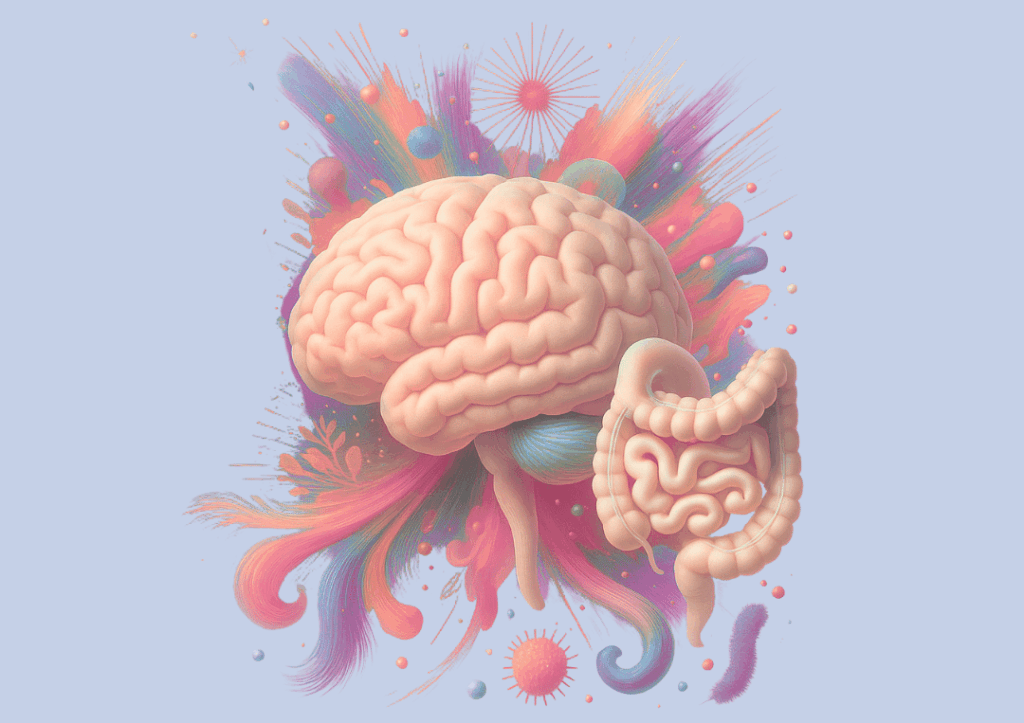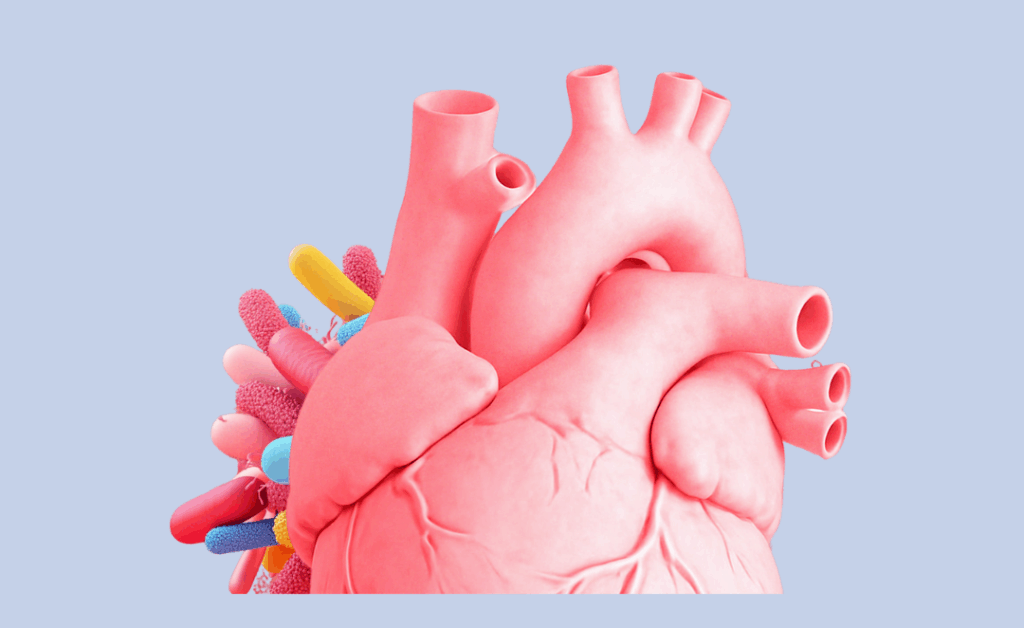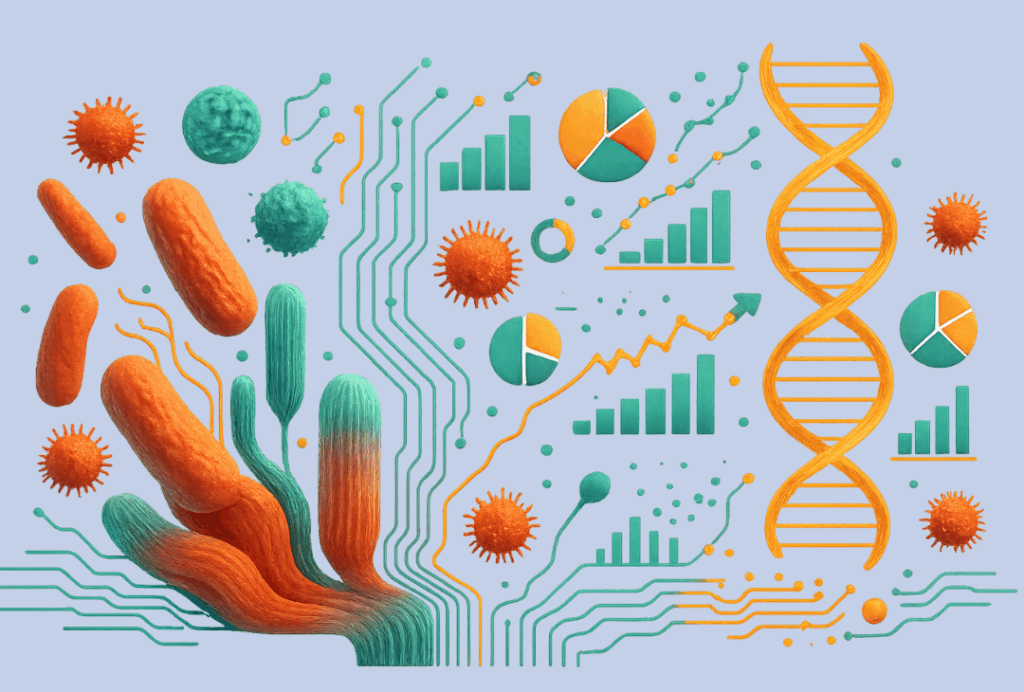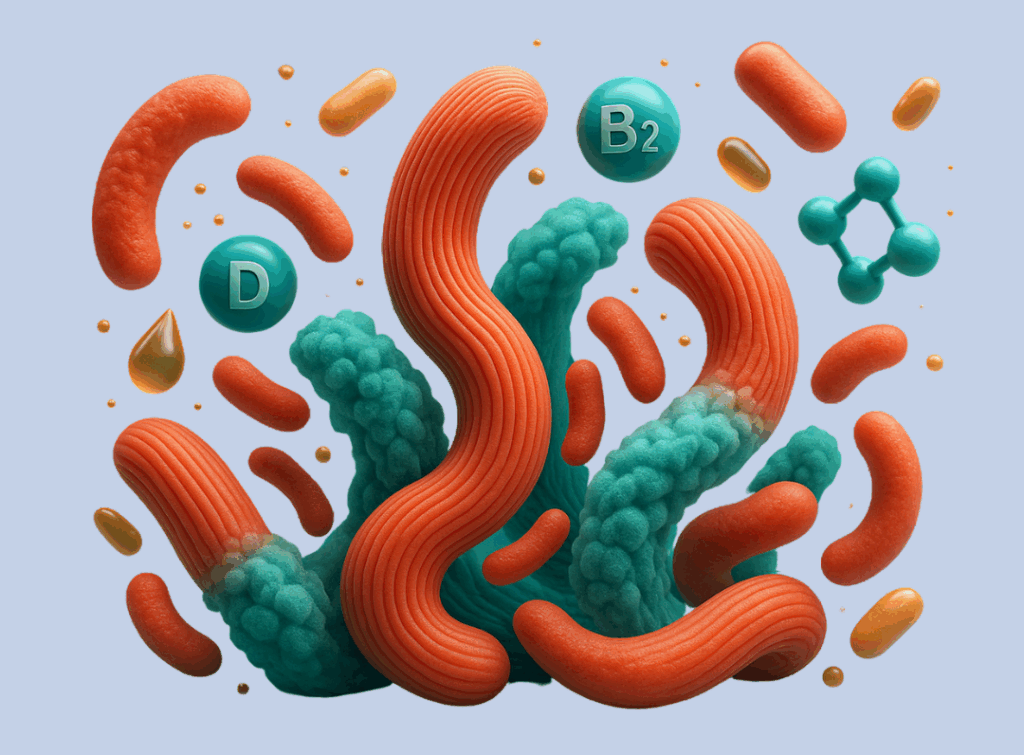Did you know that microscopic molecules on the surface of certain bacteria can send shockwaves through your immune system? These molecules, known as lipopolysaccharides (LPS)—also referred to as endotoxins—play a crucial role in bacterial survival. But in the human body, they act like tiny grenades and ruin the gut barrier, capable of triggering inflammation, metabolic dysfunction, and even neurological disorders.
Guardians of the Gut Barrier
Your gut is lined with a protective mucus barrier, which prevents harmful microbes from reaching the delicate intestinal cells. This mucus isn’t just a passive shield—it’s maintained by bacteria that play a crucial role in gut health. Akkermansia muciniphila is one of these key players, breaking down mucin in a way that stimulates its renewal. Meanwhile, Bifidobacteria and Lactobacillus indirectly support mucin production by enhancing overall gut function. A balanced presence of these microbes ensures a strong, resilient intestinal lining.
The Gut Barrier’s Breaking Point
A healthy gut should keep harmful molecules out, but when LPS-producing bacteria multiply unchecked, they destabilize the tight junction proteins that hold intestinal cells together. This allows LPS and other toxins to seep into the bloodstream, fueling systemic inflammation. This condition, known as leaky gut, has been linked to disorders ranging from irritable bowel syndrome (IBS) to autoimmune diseases and even cognitive decline through the gut-brain axis.
Strengthening Gut Defenses for Long-Term Health
Although it’s nearly impossible to avoid exposure to LPS entirely, there are effective strategies to reduce its harmful impact on health. Supporting a healthy gut is one of the best ways to keep LPS levels in check. This can be achieved by incorporating probiotics and prebiotics into the diet, which promote the growth of beneficial bacteria and reinforce the intestinal barrier. Eating a diet high in fiber, rich in whole foods, and low in processed ingredients also helps minimize gut inflammation and prevent the leakage of LPS into the bloodstream. Additionally, lifestyle factors such as regular physical activity, quality sleep, and stress management play important roles in maintaining gut integrity and reducing systemic inflammation. Together, these approaches form a comprehensive strategy to mitigate the health risks associated with LPS.
Your gut is a complex ecosystem—but with the right strategies, you can keep it working in your favor!
References:
An, L., Wirth, U., Koch, D., Schirren, M., Drefs, M., Koliogiannis, D., Nieß, H., Andrassy, J., Guba, M., Bazhin, A. V., Werner, J., & Kühn, F. (2022). The Role of Gut-Derived Lipopolysaccharides and the Intestinal Barrier in Fatty Liver Diseases. Journal of Gastrointestinal Surgery, 26(3), 671–683.
Mohr, A. E., Crawford, M., Jasbi, P., Fessler, S., & Sweazea, K. L. (2022). Lipopolysaccharide and the gut microbiota: considering structural variation. FEBS Letters, 596(7), 849–875.
Shi, N., Li, N., Duan, X., & Niu, H. (2017). Interaction between the gut microbiome and mucosal immune system. Military Medical Research, 4(1), 14.
Du, L., Lei, X., Wang, J., Wang, L., Zhong, Q., Fang, X., Li, P., Du, B., Wang, Y., & Liao, Z. (2021). Lipopolysaccharides derived from gram-negative bacterial pool of human gut microbiota promote inflammation and obesity development. International Reviews of Immunology, 41(1), 45-56.









